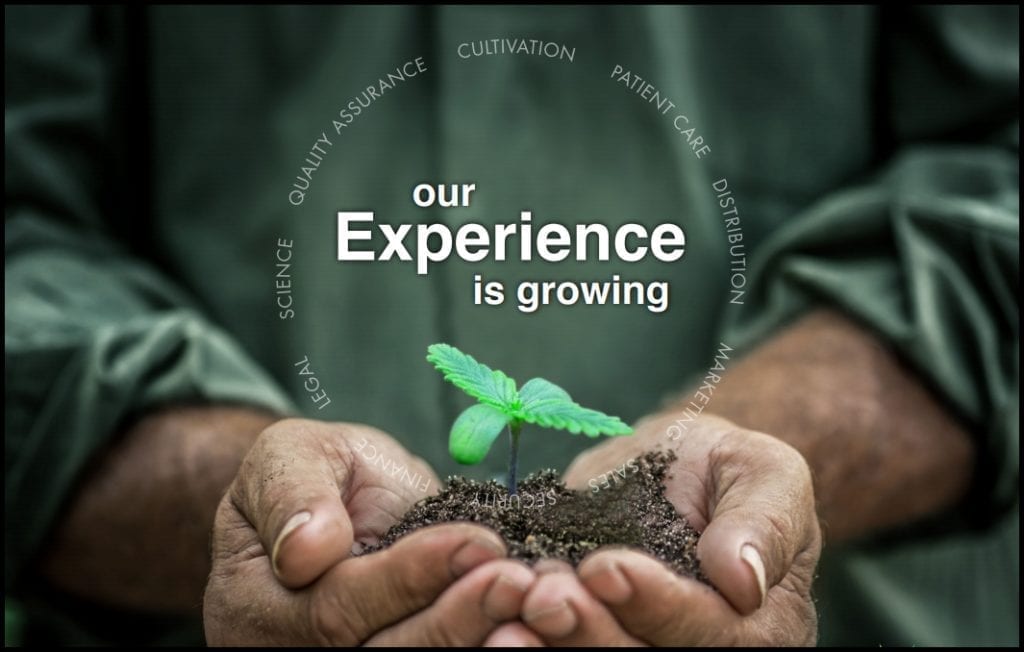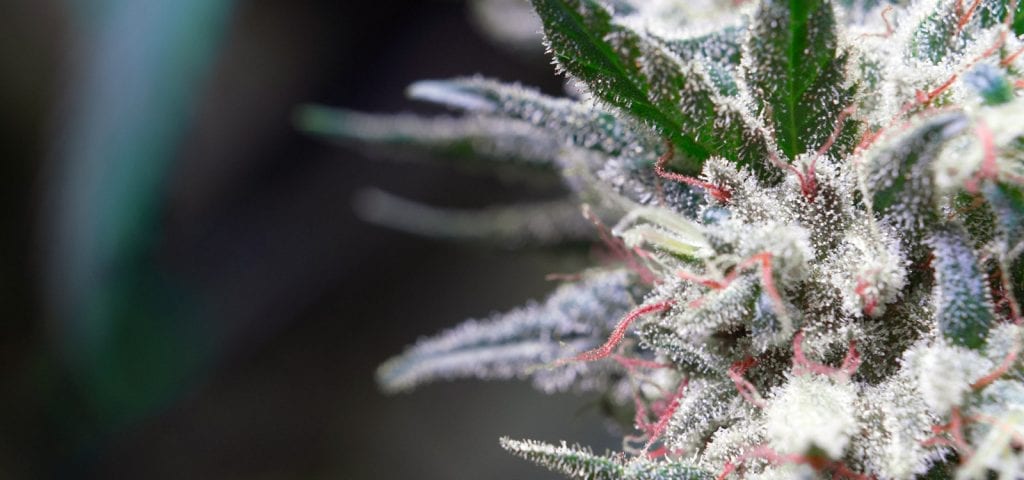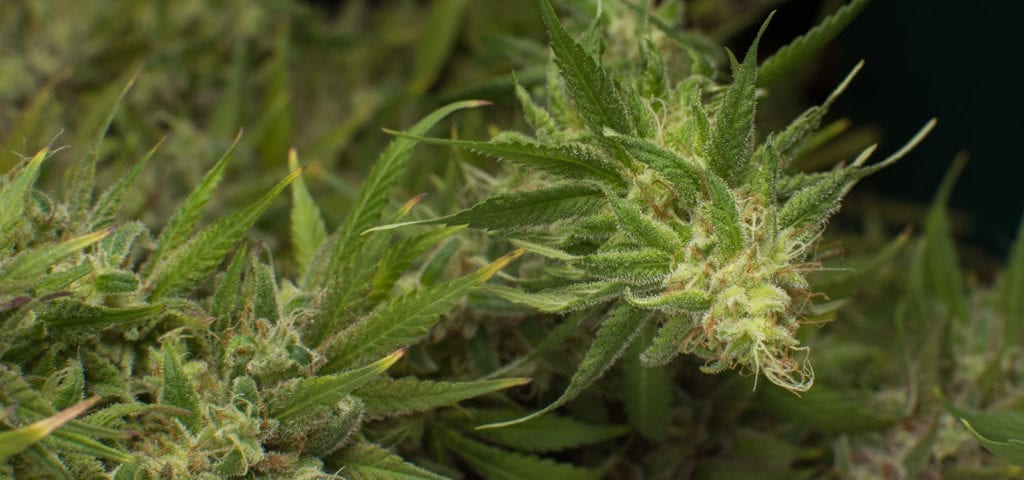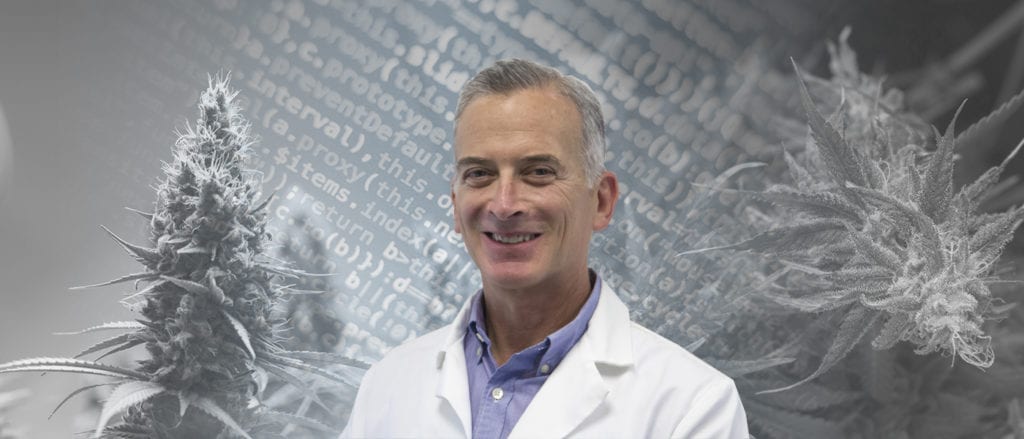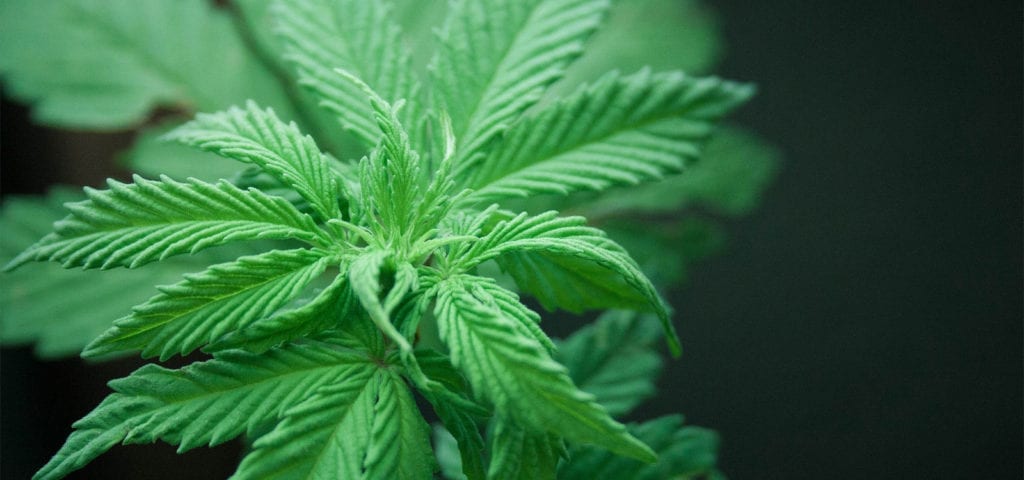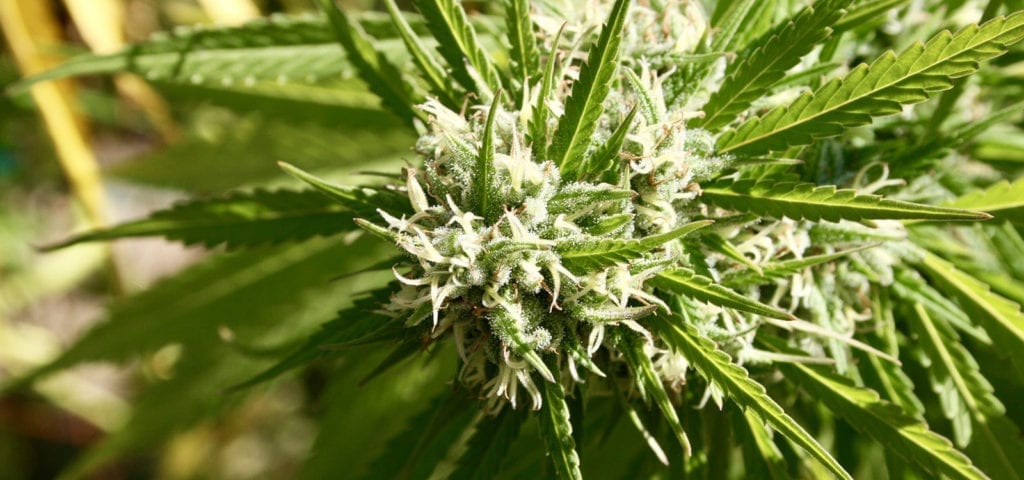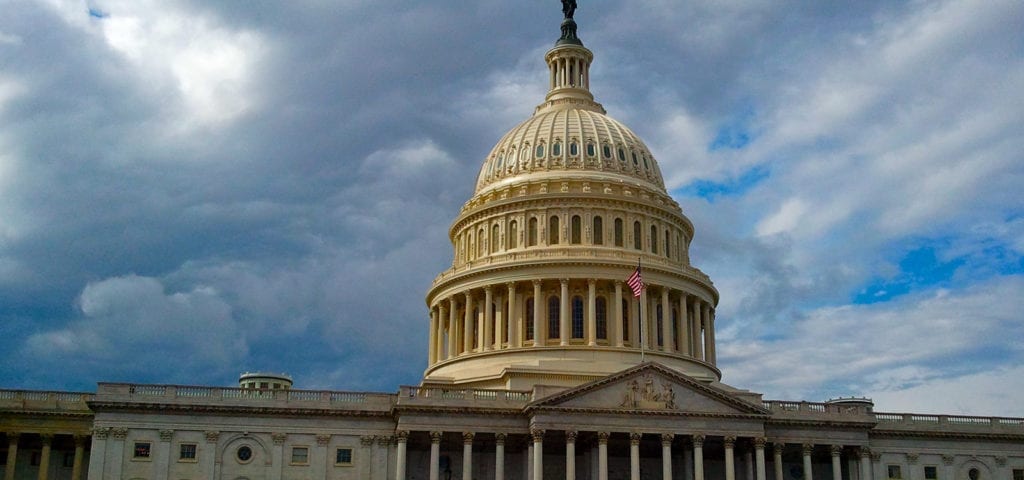Dr. Perry Solomon is the Chief Medical Officer of HelloMD, a telemedicine firm that connects would-be medical cannabis patients with canna-friendly doctors in California and New York.
In this episode of the Ganjapreneur.com podcast, Dr. Solomon joins our podcast host TG Branfalt for a discussion about the results of HelloMD’s recent patient surveys (which have led to some revolutionary findings regarding the plant’s effectiveness as an opioid exit drug), what continues to hold the medical cannabis movement back from consolidating with the mainstream medical industry, why and how telehealth is important for increasing patient access to the plant, and more!
Tune in via the player below or scroll down to read a full transcript of the interview.
Listen to the podcast:
Read the transcript:
TG Branfalt: Hey, there. I’m your host, TG Branfalt, and you are listening to the Ganjapreneur.com podcast, where we try to bring you actionable information and normalize cannabis through the stories of ganjapreneurs, activists and industry stakeholders. Today I’m really delighted. I’ve got Dr. Perry Solomon, Chief Medical Officer of HelloMD. They’ve done a lot of really good research, really good reports coming out of there. How are you doing this morning?
Perry Solomon: Great. Great, Tim. Thanks for inviting me to come and talk about cannabis and medicinal uses, and a little bit about HelloMD itself.
TG Branfalt: I’m super-thrilled, like I said. Before we get into the meat of this interview, tell me about yourself. What are your credentials? How did you end up in this space?
Dr. Perry Solomon: Well, I graduated from Columbia College of Physicians and Surgeons in New York. I’m a board-certified anesthesiologist. About two and a half, three years ago, I was introduced to one of the founders of HelloMD, and we were just starting out in terms of providing telehealth evaluations to patients in California. We were introduced and met, and we talked about the need of having a medical officer, a chief medical officer, sort of overseeing the physicians.
I did research on cannabis, its uses, and gave a little talk on cannabis at a senior facility that takes care of people 55 and older, and surprisingly, they had a cannabis club already … this was almost three years ago … and used everything for pain, used cannabis for pain instead of opioids, and it worked. They were all amazed that it worked, and I was quite frankly amazed as well and did more research, and found that in fact it really has a lot of beneficial uses for medical conditions, something that as a physician and graduating a number of years ago, still hadn’t been taught or talked about at all, and even currently very few physicians know about it.
I got involved in the company to educate physicians, and be in charge of a lot of content that’s created on HelloMD and to interface with the general public and physicians, informing them about what cannabis is essentially, and how it can help people with various medical conditions.
TG Branfalt: You said that the telehealth aspect of HelloMD was your introduction to them. Tell me a bit more about HelloMD, what you guys do, now that you’re releasing all these reports and this research. Give me a little broader idea of what HelloMD does.
Dr. Perry Solomon: Sure. Well, basically what we’ve been doing for two and a half years are the telehealth evaluations, which essentially … you know, as a matter of fact, we just started doing it in New York as well, over about a month, probably six weeks ago. Started telehealth in New York, because New York and California are the two major states that allow these types of evaluations, therefore enabling access to people who couldn’t see physicians for whatever reason, mobility, et cetera. Mobility, privacy, areas of town they don’t want to go, privacy issues, and just the ability to open access to people that can’t get to a physician.
What we found was after we started seeing more and more patients … we have now about 75,000 recommendations out in California in the past two and a half years … we were able to see and do surveys of these patients, because we have the largest number of patients in one space, in one database, and we’re able to see patterns and types of uses of cannabis and want to be able to mine this data and ask our patients, who are very cooperative and willing to share their information and the experiences they’ve had with cannabis with other people, to educate them as well.
The first study that we did, essentially, looking at the time at 17,000 patients, was in January of 2016, where we just did a general survey of broadly what patients use cannabis for, their age, their demographics, male/female, how they use it, and the types of education, age brackets, et cetera. We found very interesting facts in terms of pain being the number one issue, insomnia, depression, anxiety being the top tiers of what people use cannabis for.
The next study that we did, again using the patient base that we had, was looking at pain and opioids and cannabis, and we did that with the University of California at Berkeley and we just published that in “Cannabis and Cannabinoid Research” as an official IRB … Institutional Review Board … study through Berkeley, that we asked people, well, what were they able to do with opioids versus cannabis. Not surprisingly, except that, for the vast number of people that reacted to the survey, which was over 3,000 patients, 97 percent were able to get off and decrease their opioid use, and 95 percent of the 3,000 who answered were able to and preferred cannabis over opioids for use.
What we want to be able to do is to educate people and to poll our patients and the general public who are interested in cannabis to see how it is that they them and what medical conditions they’re able to use it for. The latest one that we did was with the Brightfield Group in Chicago, looking at specifically just CBD, and found that 80 percent of the people were able to get off their current medication and use CBD products, whether it be from hemp or from cannabis, to get off medication that they traditionally use, and able to use CBD, which is far safer than whatever it is they had been using previously. We want to try and use the data that we have to help patients understand, to help manufacturers understand what products they can manufacture that help people with specific medical conditions.
TG Branfalt: Let’s talk a little bit more about this idea of cannabis being a therapy for pain patients and opioids and this whole thing. On top of your studies, a National Institute on Drug Abuse study with the Rand Corporation found a decrease in opioid prescriptions in medical cannabis states. Paired with your studies, we’ve got a lot of ground to cover here, but let’s start with this. As a physician, what does all of this indicate to you, and what’s your opinion on cannabis being referred to as a, quote, exit drug?
Dr. Perry Solomon: Well, I think we’ve shown it is an exit drug for opioids, just in terms of 95 percent preferred it over opioids. What it means as a physician to me, and what I try to impart to other physicians when I speak with them, is that, yes, I understand, because obviously I was in the same boat in terms of never being educated about cannabis. The endocannabinoid system was not even taught when I went to medical school in the, whatever, ’70s, ’80s, et cetera, and is still … to this day, only one medical school teaches a course on the endocannabinoid system, and 13 percent of the other 143 mention it in some way, shape or form, but there’s still a reluctance in medical schools to teach anything about this.
Therefore, doctors are coming out of medical school really ignorant about it and essentially being introduced to it by their patients, quite frankly. A physician will sit there and talk to a patient and some of them will say, “Yeah, I want to use this instead of opioids. I want to use this type of medication instead of whatever, for my … for my menstrual pains, what do you think,” and they’re looking at them with a blank look on their face because they have no idea what they’re talking about. Over the past year or so, it seems more physicians are more curious about wanting to learn more about cannabis, to see what it is that’s out there and to see how it affects their patients.
I try to educate the physicians that this is a legitimate type of medication, and specifically talking about opioids, it’s an option that perhaps they can’t recommend their patient to do personally themselves … I’ll go into why that happens in a few minutes … but at least to be open to say, “Yes, cannabis would be something that you could try instead of opioids, and perhaps you should get a recommendation from a physician who is able do this for you.”
That goes back to why they’re not able to do it themselves, and it still is, quite frankly, a Schedule I drug according to the DEA, and so some physicians are reluctant to write a recommendation for cannabis, for something that’s a Schedule I substance, and whether it’s the fear of that or they’re in, for example, the VA system, and because it’s a Schedule I and the VA is a federal organization, they can’t talk about it. They definitely can’t recommend it. That’s changed recently where they can, in some instances, discuss it, but they won’t be able to write a recommendation for it.
Physicians, though, are getting more aware. They’re getting to the point where, yes, it’s something that they can suggest to their patient to do, and we’d be happy to educate them more about it … the physicians, that is … to be able to say, “Yes, this is an option to look at, and you should learn about it as best you can.”
TG Branfalt: In your opinion as a physician, what’s it going to take to get more of these doctors and other medical professionals that are able to recommend cannabis in legal states on board with getting involved in the program, or openly having these discussions?
Dr. Perry Solomon: Well, we hope these types of studies that we’re doing at HelloMD, with the Brightfield Group, with Berkeley and other major institutions across the country, to be able to say, “Listen, we can’t do … ” and like I said, I went to Columbia, a very traditional school, like a lot of physicians, and really not just Columbia. Most medical schools and the professors who teach there, you want double-blind studies. You want this type of study, that type of study, and quite frankly there’s been over 8,000 studies published about the endocannabinoid system, cannabis, what works, what doesn’t work.
The fact is most of them were published overseas, and quite frankly, medical schools and U.S. physicians can be a little snobbish in terms of where the studies come from, how they’re done, and with the FDA having a Schedule I license on cannabis, the studies based in the U.S. are very difficult to do. They’re very time-consuming, very costly, and the studies will take several years with that type of outlook in terms of the results that they want to see, to be able to come out so people actually see the results perhaps one, two, three years later.
They are starting to look at studies from Israel, from Great Britain, from Germany, where these types of studies have been going on for years. Yes, they are overseas, but they’re legitimate studies. Hopefully at least the surveys that we do with the patients is enough to convince the physicians to start looking at those studies as legitimate ones and to perhaps incorporate it into their base knowledge of cannabis does function, does work for certain medical conditions.
It doesn’t work for everything. It’s not a panacea for every disease in mankind, but there are conditions for which it definitely has been shown to work. The National Academy of Sciences, a government agency, in January came out that there was enough documentation that they went over that cannabis is an alternative for chronic pain. It helps chronic pain, and therefore is an alternative to opioids.
TG Branfalt: In these studies that you’ve conducted, that you’ve been a part of, what’s been the most surprising thing to you to come out of these?
Dr. Perry Solomon: Well, honestly the 95 and 97 percent was stunning to me, personally, in terms of that’s almost everyone was able to get off and decrease the use of their opioids from what they had been taking previously. Now, with 91 deaths a day and three-quarters of them due to prescription drugs, you’re talking about 60 people a day perhaps not dying because they’ve been taking cannabis, which you can’t overdose from, instead of opioids. That number just blows me away in terms of the number of lives that can be saved if patients, one, and two, physicians, try and suggest it to their patients.
Now, you know I’m an anesthesiologist. I’ve written pain medication, and there is an issue for physicians to be willing to do that. For example, Tim, the patient that stands in front of me and says, “I have chronic back pain,” for example, and they have a prescription pad that says Percocet. You can take one Percocet every three or four hours, PRN for pain, and it’s very predictable and you know that pill has this many milligrams of Percoset, Percodan, in it, OxyContin. You know, it has a specific, measured dose of narcotic.
Then you have the other prescription pad and it’s for cannabis. Well, at this point in time, what’s the physician supposed to write? One puff? Take a bite of this brownie? Take a throat … a lozenge, take this hit out of a vape pen? It’s all very nebulous, and so without rigid controls as to what’s in specific doses of a cannabis puff or a cannabis metered dose, what’s in this edible that’s nationally standardized across at least maybe even individual states, so a physician can actually write something.
The other problem is that it’s unfortunately unlike medication the way it’s been traditionally prescribed, in that the medication itself reacts differently with the people. What works for one person may not in fact work for the other, so the patient may need to take a little bit less and this patient may take a little bit more, and the physician doesn’t really understand that or know in advance how much to give the patient. A lot of this … and we tell our patients, and everyone quite frankly does this … you start low and slow. In other words, you start with a low dose, start building it up to see the effect it has individually on you, and then that’s the dose that you stick with.
Again, it’s going to be different per person, so the physician needs to be educated about this as well, which is one of the reasons, quite frankly, that instead of the reschedulization of cannabis perhaps from a I to a II, which is Percocet, or a III, to Vicodin, the physician’s always going to have that trouble. Quite frankly, I think it should be deschedulized altogether and just have it in a pharmacy or wherever, where the patient proves they’re of age and ingredients that have been documented are on the label, and it’s used to effect. In other words, the patient again needs to start themselves and see what it is that works for them, sort of like what alcohol is. You know, you take one drink, this cocktail works for you. Many people are not going to have to have two or three, but if that person has a high tolerance, they may in fact need more. The same with cannabis.
TG Branfalt: We’ve got a lot of ground to cover, and this is all just so fascinating to me, getting the insight of a physician on these issues, these very, very serious issues. Before we keep digging, we’ve got to take a short break. This is the Ganjapreneur.com podcast. I’m TG Branfalt.
If you are looking for a job in the rapidly-growing and highly-competitive cannabis industry, Ganjapreneur.com is the place to look. Visit the Ganjapreneur job board today to browse current openings with cannabis companies throughout the United States, from entry-level budtender positions to executive-level career opportunities. You can also create a profile and upload your resume to be discovered by cannabis recruiters. Visit our job board at jobs.ganjapreneur.com to create your profile today.
If you are a business owner, you can post your job openings for as little as $25 on our job board to reach the largest and most engaged audience of cannabis professionals on the web. Companies who are listed in the Ganjapreneur Business Directory are eligible for free job listings. If you are already signed up, contact us today via the website, or send us an email at grow@ganjapreneur.com to activate your unique coupon.
TG Branfalt: Hey, welcome back to the Ganjapreneur.com podcast. I’m your host, TG Branfalt, here with Dr. Perry Solomon, Chief Medical Officer for HelloMD. Before the break, we were talking a bit about the stigma that exists within the medical community. I want to talk to you a bit about dispelling the stigma for would-be patients. How do you get some of those pain patients on board who have been taking the opioids for years, or are not … they’re just not ready to take the cannabis plunge? How do you work with them? How do you get them on board?
Dr. Perry Solomon: Well, you know, it’s a process. Well, how would a patient approach it? We would see the patient, quite frankly, when they were already ready to use cannabis for that, because they’re coming to us for their recommendation. For example, when we give lectures at various communities, senior care facilities or senior communities, we try and say … listen, the effects of the opioids that they’re taking are huge in terms of … obviously the first one that comes up is constipation, and we ask if people are constipated from taking opioids. You know, that’s a huge issue, and obviously … I don’t know if you saw the Super Bowl, I think it was two or three years ago. A company came out with a medication to cure the constipation that the medication caused, and so they’re actually making money both ways in taking the medication for the opioids and giving you a medication … Movantik is what it’s called … to get rid of your constipation, so the side effects of that.
They stoop, or some people get nauseated from opioids. Some people just get dizzy and dysphoric and can’t drive because they’re just dizzy all the time from taking opioids, or nauseated. We try and educate them and say, “Listen, these are side effects. You have pain, you may have chronic pain, you may be on OxyContin,” so the education of the patients to say, “Here, here’s a medication. Yes, you may have been a child of the ’60s and ’70s, you told your kids say no to drugs, which is all well and good,” and no children, I don’t feel, unless they have a medical condition to take it for, should be using cannabis, because there are effects that it has on their mental abilities, et cetera.
For these people who were trained to say no on drugs, the Nancy Reagan mantra, the times have really changed in terms of the ability of the cannabis community and manufacturers to make more targeted types of medication for certain medical conditions, for pain for example, or for sexual dysfunction for women, for different types of products that have different concentrations of THC and CBD. Someone might say, “Listen, I just want something for inflammation, I have Crohn’s or whatever, I don’t want to get high, I don’t want to have that dysphoric, psychoactive effect.”
Well, there are types of cannabis now, whether it be a plant, whether it be a vape, whether it be a tincture, that’s able to concentrate a CBD, which doesn’t have the psychoactive effects, versus the THC, which does have it. Someone would take something with a very low THC level and a high CBD level, and wouldn’t get the effect that perhaps they’re afraid of getting. It’s the ability to tell these patients and people, consumers, to say, “Yes, there’s an option. You don’t always have to use cannabis.” They might say, “if I’m using pot, I’m going to get high.” That’s just not true.
TG Branfalt: We have this just crazy death toll from opioids. It’s a national health crisis. They call it the opioid epidemic, I’m sure you know that. In your opinion, in this fight, why haven’t states fully embraced medical cannabis as a tool, given the various studies, reports and anecdotal evidence?
Dr. Perry Solomon: Well, I mean, there are only 30 states now, or 29 and D.C., that allow medical cannabis, and it is a fight from state to state even in those. Some of them haven’t even had pain, chronic pain, as an indication for being able to use cannabis instead of opioids. I just gave testimony to the California Medical Board in terms of using our medical board, having them help promote the California model of, one, using telehealth to increase access, and two, therefore not requiring a physical exam, so more patients can actually obtain cannabis to be able to use instead of opioids.
The states like West Virginia, New Hampshire, Vermont, all these states that have horrific death tolls due to opioid overdoses, it would be beneficial to have telehelp so that patients who can’t get to a doctor … because quite frankly, there’s not that many doctors that are doing recommendations in states where they need to have a storefront, because of the reasons I’ve mentioned previously. They don’t want to get involved in the DEA, they don’t want to have to be known as the pot doctor, and so other physicians don’t refer patients to them because they don’t understand exactly what it is they’re doing in terms of using cannabis to try and exit out of opioids.
The legislatures need to be aware of this. I think, again, with more and more studies like what we’re doing, with more and more surveys, with more and more pressure, and hopefully programs such as yours, we’ll be able to help these people understand that there is a way, there is an alternative other than opioids, to be able to treat their chronic pain and hopefully decrease the amount of opioid deaths.
TG Branfalt: About six months ago the New Mexico governor actually vetoed a bill that would have added opioid use dependence to their medical cannabis regime. I’m wondering if, in your opinion, this is something that should be added to these regimes, and whether or not just adding the chronic pain is enough, or should the state boards who make these recommendations go the step further and add that disorder?
Dr. Perry Solomon: You know, there’s a clinic in California, down by Los Angeles, that actually is using cannabis to exit out of opioid abuse, so there is precedent for that to be done. Again, whether or not it’s education for this gentleman, or what it would take for them do it, but I think that it’s an option that should be on the able for everyone treating opioid dependency to be able to try, especially in states where it’s legal in the first place. I think it would definitely be an option that should be out there for treatment centers to be able to use it for that.
TG Branfalt: Then are there any underreported conditions for medical cannabis that it may be useful in, that you’ve discovered in your conversations with patients, other health professionals and in your research?
Dr. Perry Solomon: No. I mean, the top four that I had mentioned before, pain, anorexia, migraines, depression, anxiety, are really the top ones. I mean, it goes all the way down to a few patients find it useful for this, so many medical conditions, innumerable medical conditions, like I said, whether it works for all of them, I don’t know. We try and concentrate essentially the surveys and the studies on the ones that really affect the most people.
Quite frankly, for example, there’s a cannabis drug called Foria from a company, Foria, that’s been treating menstrual cramps. It’s something that’s a suppository that’s put into the vagina. Just think of all the medical conditions and the delivery systems that’s able to be used for this. There’s many medical conditions where, well, let me try cannabis, maybe a different way to administer it, whether a different concentration, a different type of THC/CBD mixture, a terpene composition.
In other words, eventually what’ll happen at some point in time … and there are companies, medical genomics, who are looking into the genetics of the plant and the genetics of people … and hopefully at some point in time have targeted cannabis. In other words, someone has a specific medical condition with this gene sequence. Let’s see if we can develop a specific compound for that person and that specific medical condition. If it’s not specific to the person, then perhaps the type of medical condition that they have, we can create a specific medication, cannabis medication, specifically for that condition.
That’s really the gold ring that everyone’s trying to do, that they can have an oil or a tincture or a plant that specifically works for depression, specifically works for anxiety, specifically works for Crohn’s disease and autoimmune disease. That’s the hope, that in some point in time that will happen, and then beyond that, it’ll be targeted to an individual person and their genes, because each person in the medical condition itself has a different reaction to the medication based on their genetic components. Eventually it’ll get like that. We’re far away from that happening, but that’s the hope that will happen at some point in time in the future.
TG Branfalt: That’s a really incredible thing to think about, that we could eventually come to a place where you can breed cannabis for individuals, for them to use as a therapy. That’s really cool to think about. I want to talk to you a bit more about telehealth. Before we do that, we’ve got to take a short break. This is the Ganjapreneur.com podcast. I’m TG Branfalt.
At Ganjapreneur, we have heard from dozens of cannabis business owners who have encountered the issue of “canna-bias,” which is when a mainstream business, whether a landlord, bank, or some other provider of vital business services, refuses to do business with them simply because of their association with cannabis. We have even heard stories of businesses being unable to provide health and life insurance for their employees because the insurance providers were too afraid to work with them.
We believe that this fear is totally unreasonable, and that cannabis business owners deserve access to the same services and resources that other businesses are afforded, that they should be able to hire consultation to help them follow the letter of the law in their business endeavors, and that they should be able to provide employee benefits without needing to compromise on the quality of coverage they can offer. This is why we created the Ganjapreneur.com Business Service Directory, a resource for cannabis professionals to find and connect with service providers who are cannabis-friendly and who are actively seeking cannabis-industry clients.
If you are considering hiring a business consultant, lawyer, accountant, web designer, or any other ancillary service for your business, go to Ganjapreneur.com/businesses to browse hundreds of agencies, firms, and organizations who support cannabis legalization and who want to help you grow your business. With so many options to choose from in each service category, you will be able to browse company profiles and do research on multiple companies in advance, so you can find the provider who is the best fit for your particular need.
Our business service directory is intended to be a useful and well-maintained resource, which is why we individually vet each listing that is submitted. If you are a business service provider who wants to work with cannabis clients, you may be a good fit for our service directory. Go to Ganjapreneur.com/businesses to create your profile and start connecting with cannabis entrepreneurs today.
TG Branfalt: Hey, welcome back to the Ganjapreneur.com podcast. I’m your host, TG Branfalt, here with Dr. Perry Solomon, Chief Medical Officer for HelloMD. I want to talk to you a bit about telehealth. How has telehealth impacted the medical cannabis space?
Dr. Perry Solomon: Well, I mean, I can talk about California, obviously, because I’m most familiar with it, and it started in October of 2014 when the Medical Board of California realized that telehealth was essentially something that’s been sweeping the country and that’s a viable means of evaluating patients for various medical conditions, from various physicians. They changed the regulations in October of ’14 to say that telehealth evaluations for cannabis specifically was acceptable, as long as you meet the standards of care with the history of the patient, what’s going on, and you speak with them using remote capabilities.
When we started in March of the following year, 2015, the people were flocking to us in terms of saying, “Thank goodness there’s a facility, there’s a way to talk to somebody like this, using my laptop, using my cell phone, using my iPad or whatever, to talk to someone, because there’s no doctor near me. There’s no one near me to be able to speak with, go into their office, to do an evaluation” Or the physician is in an area of the town where they can’t park, it’s a seedy area of town, they worry about privacy issues, “Who’s going to see me in essentially a pot doctor’s office? I have mobility issues, I have a wheelchair, it takes me hours to get anyplace,” and it just went on and on and on.
The way we looked at it, and I continue to look at it, is that it increases access to people that normally can’t get to a physician, where they can’t see a physician face-to-face. We’re able to take care of and service this population across California. My hope is, because telehealth is used in 49 states in the country, almost 50 now, in some way, shape or form, to be evaluated for a myriad of specialties, not just people looking for cannabis, of course, but for everything. Teledoctors, all these companies that are doing millions and millions of evaluations across the country.
Yes, they’re treating conditions, otitis media, ear problems with a kid, or a sore throat or creams or ointments, et cetera, which is great, and they better to be able to do that. Well, here we’re using telehealth. If we can do it in other states across the country other than California and New York, just think of the number of people, as I think I mentioned previously, that would be able to be evaluated for their pain, for example, and to say, “Yes, now you can take cannabis instead of taking the opioids,” and again decrease the opioid epidemic by being able to increase the access to the maximum number of people, to be able to access the ability to get cannabis.
TG Branfalt: If there’s 49 states that allow telehealth and then there’s 26 states plus D.C. that have medical cannabis regimes, what prevents these regimes from allowing telehealth? It seems sort of nonsensical.
Dr. Perry Solomon: Yes. Well, they do. They specifically … in other states, they specifically exclude cannabis because when they had the telehealth laws in the first place, they just said that. They just made them as evaluations, and then separately just several years ago when it started, in terms of the ability of the laws across the country sweeping to legalize medical cannabis, they make these medical cannabis regulations, the legislature does, and specifically say, “Examinations need to be made in person.” That’s where hopefully the push from our Medical Board of California, for example, or us at HelloMD or other interested parties, would be able to lobby the legislature to be able to do telehealth evaluations.
Of course, there’s going to be arguments and fights, perhaps even and probably from physicians, saying that, “Well, it’s a Schedule I drug, we don’t know anything about it, there’s been no studies, why are you doing this, a physical exam is vital for being able to do this, I don’t care what the telehealth laws say.” There’s arguments from physicians and possibly ignorance from legislatures as well, to be able to want to use tele-evaluations for helping people to get access to cannabis.
TG Branfalt: It sounds incredibly frustrating from your point of view, but move me on a little bit. How do you stay up to date with the newest products and therapies that are available?
Dr. Perry Solomon: Well, we have on our site, you know, manufacturers who present their products, and we introduce them, we interview them and talk about them. When someone says, “I have a vape pen that vibrates when you’ve done with your metered dose,” like hmbldt, for example, that’s unusual, that’s different. I mean, if someone says, “We have a different cartridge and it’s a different color or something,” that’s okay, but manufacturers come to us to introduce their products because they know that if it’s really unique, if it’s really special or it’s something that’s different than what’s been in the market previously, that we’ll put it out and say, “Hey, look at this new product.”
We have hundreds of thousands of members across the country that look to us for information. We do obviously the reading in medical journals, whatever comes up from my perspective, but we have a very actively engaged member base who also introduce products to us and say, “Hey, Perry,” or Pamela or Mark or whomever, “I ran across this product in this state,” for example, “and what do you think about it, and let me introduce this to you.”
We get feedback from our patients as well, and our members as well, introducing us to products, because we can’t be everywhere. Obviously we’re based in California and also now New York, but there are also all the other states where different products are available or not available, because something that’s manufactured here can’t be shipped over to a different state, just because of the interstate transport laws, and what’s available and what medical conditions.
Like for example, in New York State, you can’t smoke flower, but obviously you can here in California. Different states have different types of products that are available. Even though something’s a whiz-bang thing here in California, perhaps no one else in the country can get it, so we have to try and differentiate what products are available in what areas of the country.
TG Branfalt: Finally, I’ve got to ask. As a physician, what’s the most medically fascinating thing to you about cannabis?
Dr. Perry Solomon: Well, here’s essentially a weed that has unbelievable medical potential. You know, yes, a lot of plants, obviously the opioids come from a plant as well, but it’s the many different types of strains and derivatives that we’re going to be able to get from a single plant, from the 100 or so compounds that make up the plant. Eventually and hopefully there’ll be, like I said before, more specific products made from a single plant to help multiple medical conditions.
Instead of the mold on bread for penicillin — that’s great, it treats what penicillin treats. Here, for example, the plant can treat a range of medical problems and medical conditions from one single plant. I think it’s been around for thousands and thousands of years. In Asia, they’ve used it forever, and South America. I think Western medicine needs to open their eyes and to say, “Yes, there are options out there. Let’s look at this plant and not make it so difficult to do research, not make it a stigma for people to use, because it does work in so many areas.”
TG Branfalt: Finally, what advice would you have for other medical professionals that are exploring, maybe dipping their toes into becoming recommenders, or those medical professionals that aren’t yet in the space but might be considering it, who are listening?
Dr. Perry Solomon: There are courses that are given around the country. There’s online courses. The Society of Cannabis Clinicians has a CME-approved course that we make all of our physicians take in California. Different states now have different regulations for taking courses. In New York, our physicians and nurse practitioners take the TheAnswerPage course, which is given out of Boston, which is mandated to be done in multiple states. In Florida it’s mandated, in New York it’s mandated that they need to take these courses.
It’s really the first step, to take courses that are CME, Continuing Medical Education-approved courses, to be able to take these to get a basic knowledge, a background of cannabis, the history, how it grows, what it’s used for, et cetera. I’ve encouraged physicians and nurse practitioners and anyone interested in getting further depth of knowledge to take these types of organized courses. There are courses given all over the country about it, but of course you have to travel. These are online courses that make it easier for a physician and just the general public to be able to take, to be able to educate themselves about cannabis in an organized manner.
TG Branfalt: Well, Dr. Solomon, I really want to thank you … I know you’re a busy guy, I know you have a lot going on … for taking the time to come on the show. This has really been an enlightening conversation for me and I’m sure for the listeners. Where can people find out more about the services that you offer at HelloMD?
Dr. Perry Solomon: Well, it’s right on our website, www.hellomd.com, and patients and members or anyone could really register your name. That’s all you do, and you’re able to ask questions. The first page is just “Ask a question here,” and as you type in your question, there have been thousands and thousands of questions answered and asked, and people may have asked the same question. You can see the responses from our physicians, from manufacturers, from patients in different areas of the country, trying to find out what works best in their area and what works best for their medical condition. If you need a cannabis recommendation in California, we’d be happy to take care of you, or in New York as well.
TG Branfalt: Well, thanks again for coming on the show. I appreciate everything that you’re doing to raise awareness and really being on the forefront of these studies, because everyone knows that we need a lot more of those in order to change the public’s perception, so godspeed to you. Thank you so much.
Dr. Perry Solomon: Well, thank you for having me, Tim. I appreciate the opportunity to talk.
TG Branfalt: You can find more episodes of the Ganjapreneur.com podcast in the podcast section of Ganjapreneur.com and in the Apple iTunes store. On the Ganjapreneur.com website, you will find the latest cannabis news and cannabis jobs updated daily, along with transcripts of this podcast. You can also download the Ganjapreneur.com app in iTunes and Google Play. I’ve been your host, TG Branfalt.
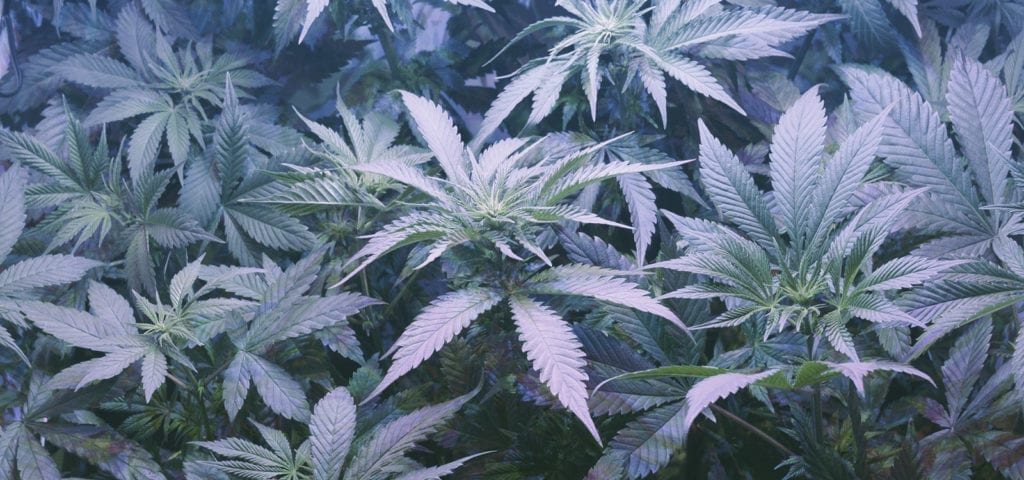
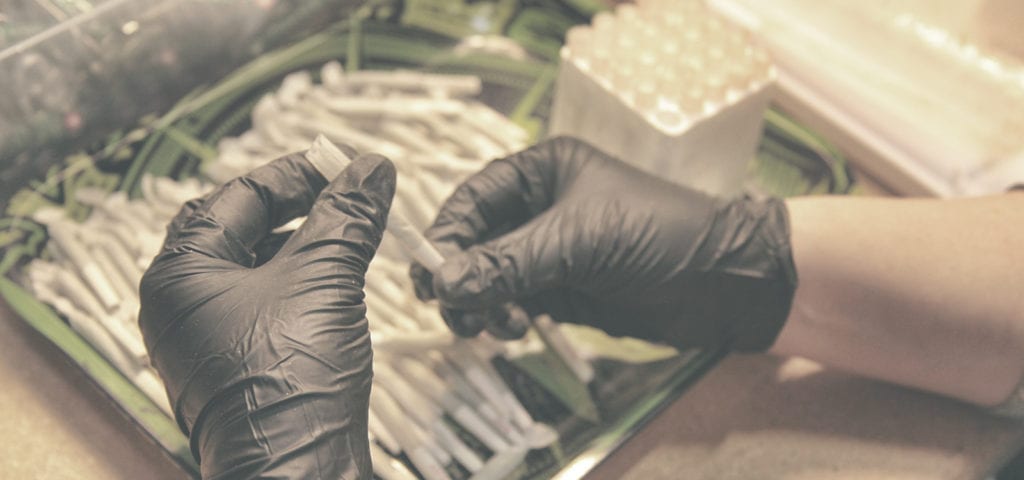


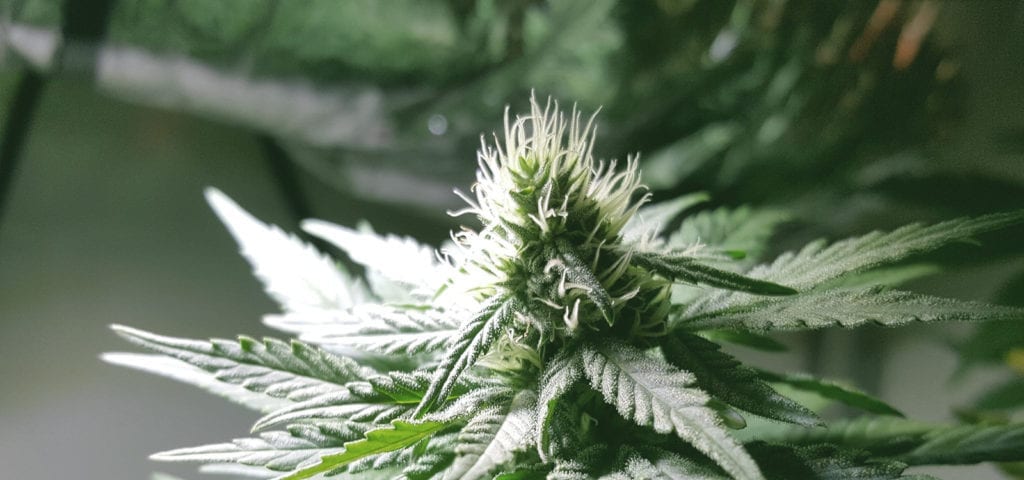


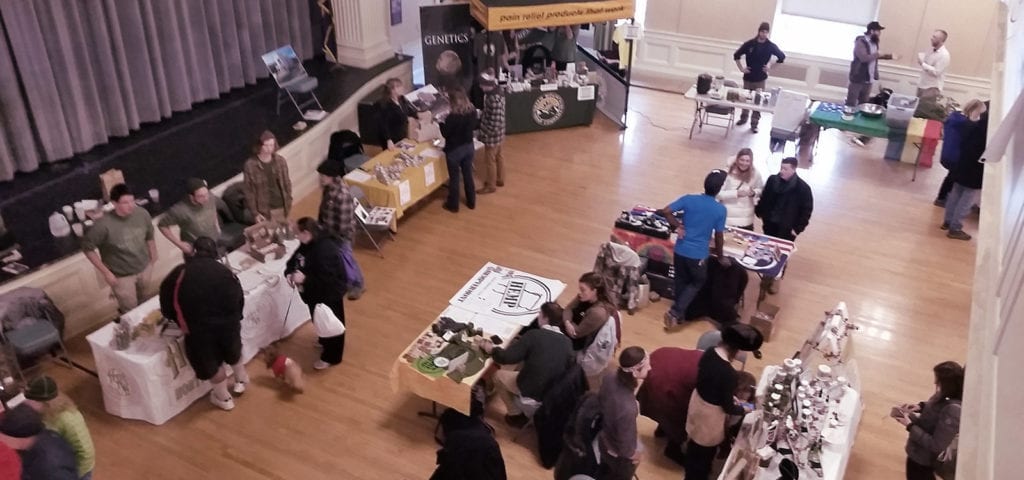
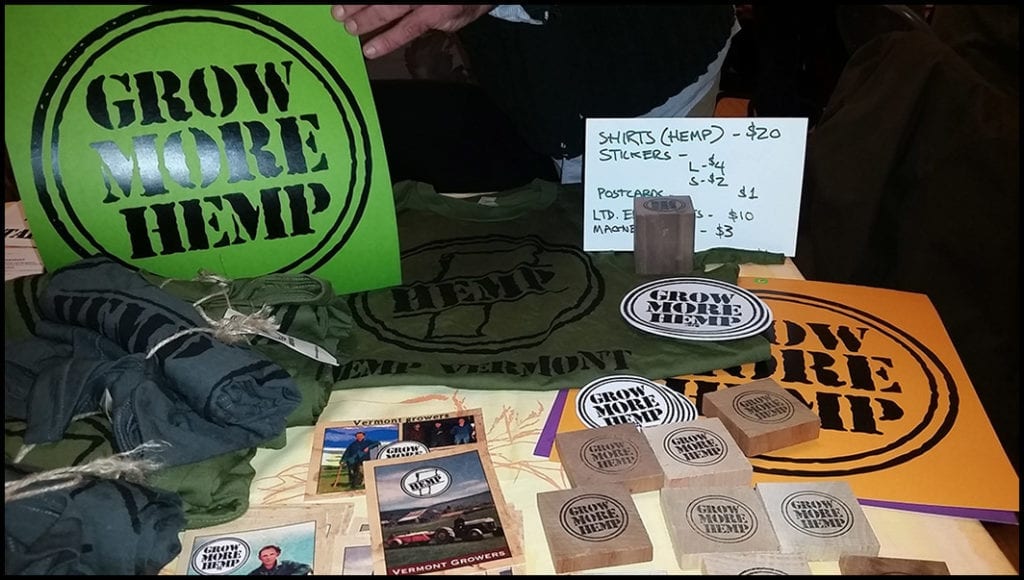
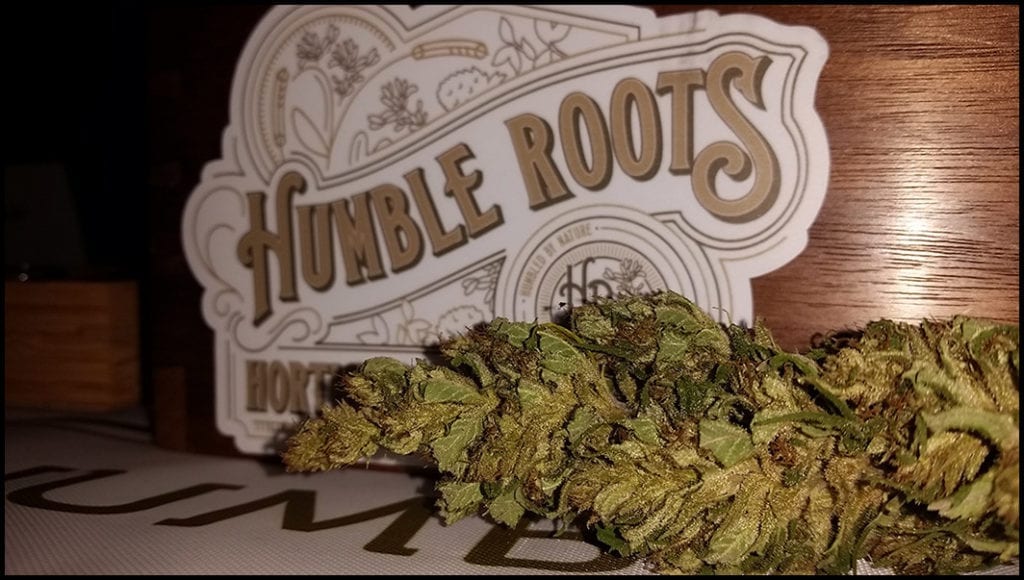
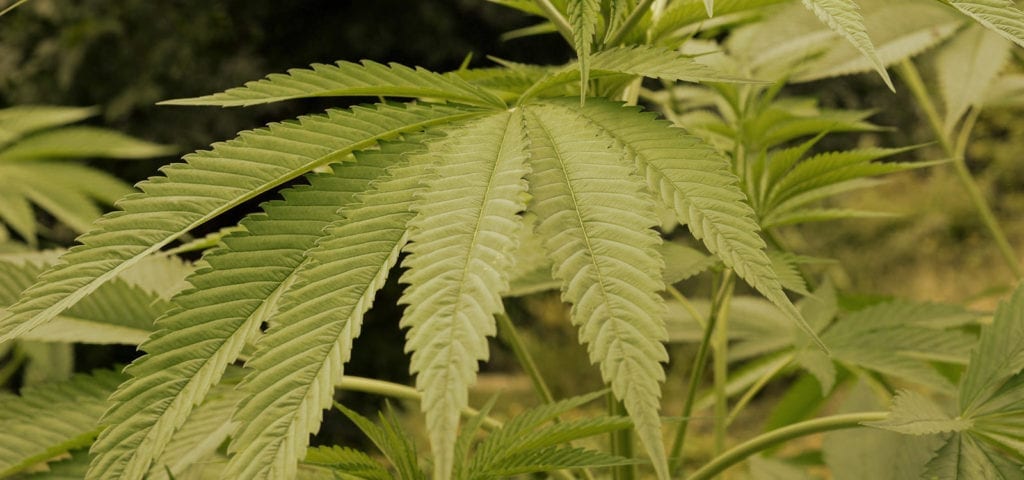


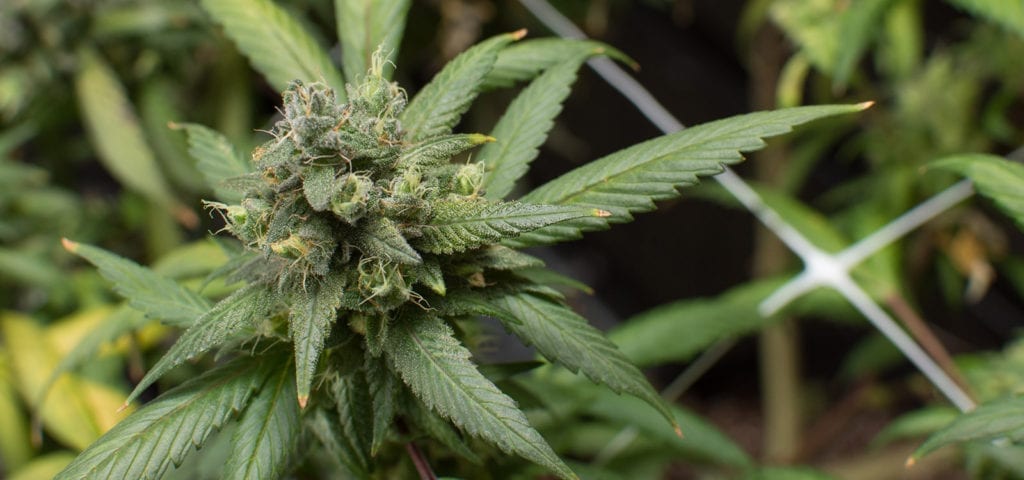


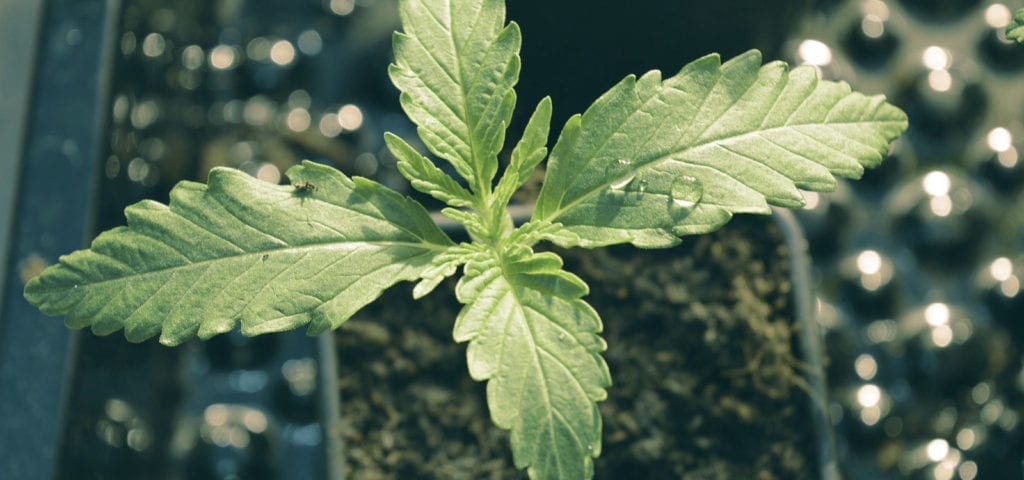
 Following a string of internal successes and in keeping with the rapid expansion of Canada’s national medical and adult-use cannabis markets, Canadian cannabis firm
Following a string of internal successes and in keeping with the rapid expansion of Canada’s national medical and adult-use cannabis markets, Canadian cannabis firm 